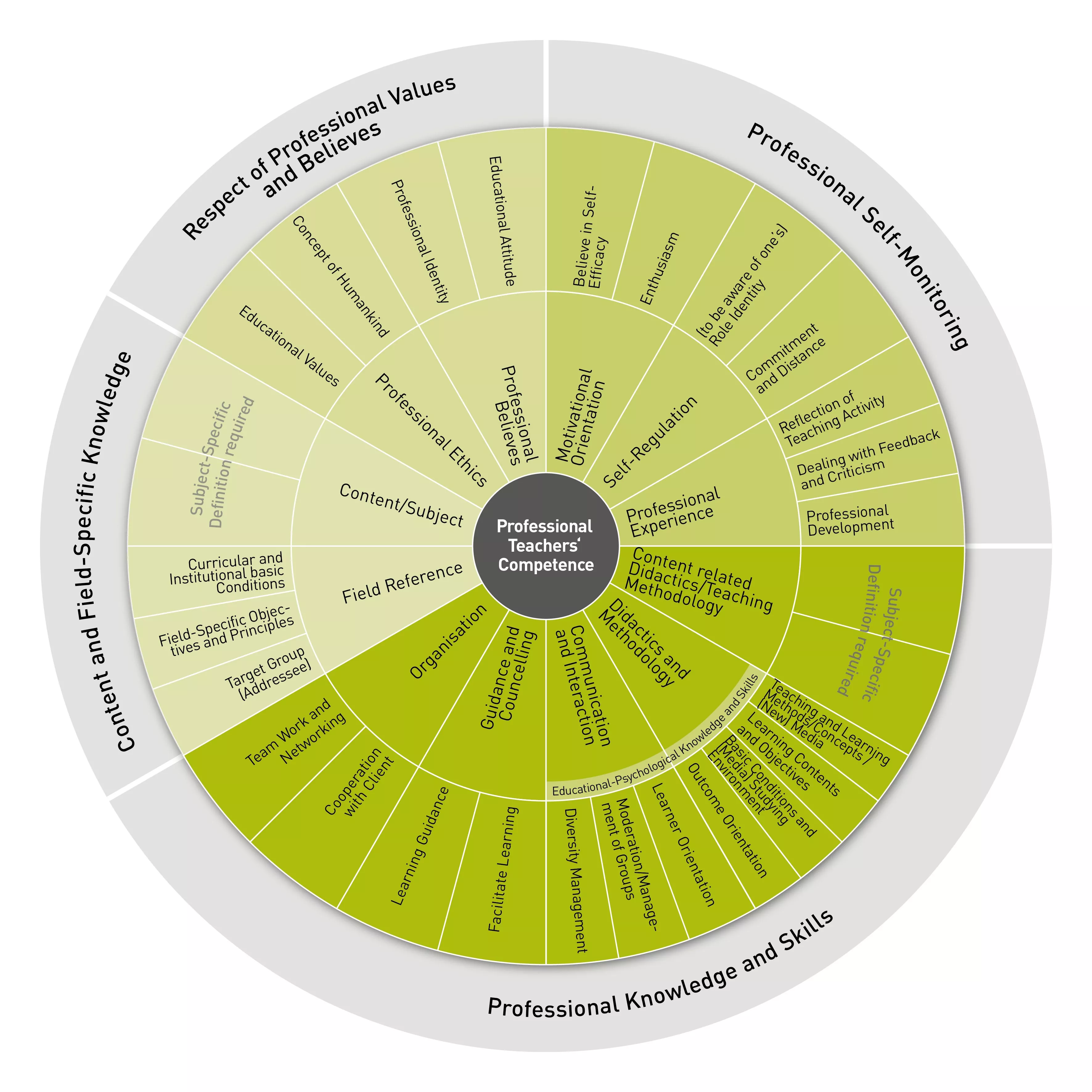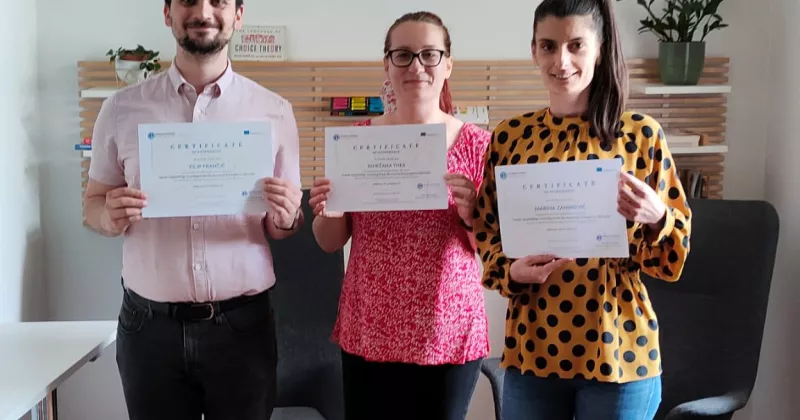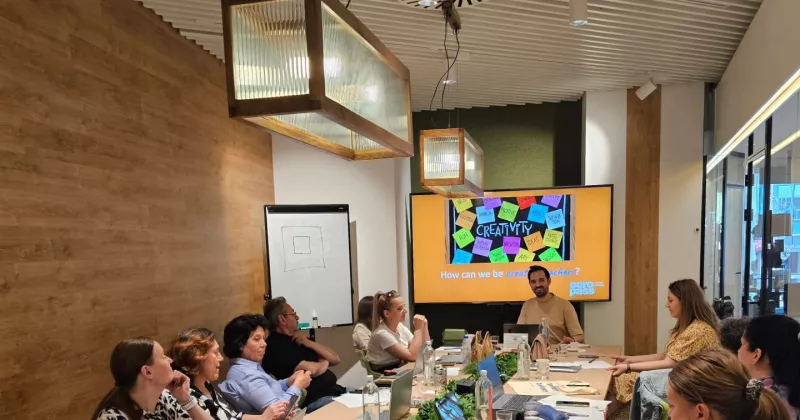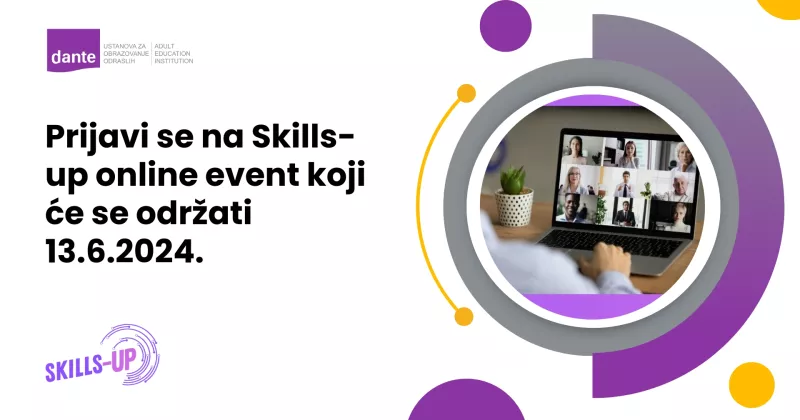GRETA – a competence model for teachers in continuing training


Which competences are required in order to be able to teach successfully in adult and continuing education and training? What are the standards for teachers and trainers in these two areas? These questions were very much to the forefront as the German Institute for Adult Education – Leibniz Centre for Lifelong Learning (DIE) joined forces with eight provider and professional associations involved in adult and continuing education and training right across the country to instigate the development of a competence model that will map the professional competence of teachers and trainers in adult and continuing education and training. The aims of drawing up this competence model are to deliver new impetuses for the development of professionalism and for the validation of informal and non-formal acquired competences of teachers and trainers. The task has been taken on within the scope of a project funded by the Federal Ministry of Education and Research (BMBF) entitled "GRETA – Foundations for the development of a cross-provider recognition procedure for the competences of teachers in adult education and continuing training”. The project term runs from December 2014 to November 2018.
A cross-cutting model
The basis for such recognition is provided by a standardised cross-provider competence model of teachers and trainers in adult and continuing education and training. Irrespective of the specific planning processes within the GRETA project, however, the model presented can also be used for other purposes – for self-assessment of a teacher’s own teaching competences, for human resources development or for the recruitment of teaching staff.
The GRETA project focuses on all those who support the learning of adults on a full-time or part-time basis by planning, executing or evaluating educational provision, regardless of whether they are employed as salaried employees or on a freelance, self-employed or voluntary basis. In the different areas across adult education and continuing training, these persons are variously referred to as “course leaders”, “facilitators”, “lecturers”, “learning support staff”, “learning advisors” or “coaches”.
We understand competences to be the cognitive abilities and skills available to individuals and which can be learned by individuals in order to solve certain problems and the associated motivational, volitional and social readinesses and abilities to be able to use the problem solutions successfully and responsibly in variable situations (Weinert, 2001)(DE), p. 27).
A holistic definition of competence
For this reason, the competence model developed in the project is based on a holistic definition of competence. In the interest of achieving such a broad understanding of competences, aspects of motivational willingness and social preparedness were explicitly included and described in the GRETA model alongside knowledge and cognitive skills and abilities. The development of the GRETA competence model was guided by the model for professional competences drawn up by Baumert & Kunter (2006) (DE). This was adapted for the area of adult education and continuing training by Schrader & Goeze (Professional competences of teaching staff in adult education and continuing training – a framework model for research, recruitment and advanced training, awaiting publication).
Figure: The GRETA competence model

The present model encompasses four so-called competence aspects (outer ring). These are professional knowledge and skills, subject and field-specific knowledge, professional self-management and professional values and beliefs. These competence aspects are sub-divided into competence areas (inner ring), which are in turn further separated into competence facets (middle ring). The term knowledge as used in this context refers to theoretical and formal knowledge (e.g. professional knowledge). In the case of knowledge which tends to be more application related and practical, we speak of knowledge and skills (Schrader & Goeze, awaiting publication). Parts of the description of the competence model have already been published in the DIE Journal on Adult Education 3/2016 (DE) and here.
New focus on country-specific objectives and characteristics
The competence model has now been translated for the first time for use within an international context. Account should be taken of the fact that terminologies have not been subjected to language-specific scrutiny and should therefore be regarded as provisional. It would now be interesting to map the competences described in the GRETA model against country-specific objectives and characteristics. For this purpose, we would need to examine existing international approaches to teaching competences and to identify commonalities with and possible differences to the German model. We would welcome any appropriate suggestions and indications.
Stefanie Lencer (lencer@die-bonn.de) and Dr. Anne Strauch (strauch@die-bonn.de) are academic researchers in the Teaching, Learning and Counselling Department at DIE. They are currently working on a further forthcoming publication for the GRETA project, which will be entitled “Challenges and approach in the development of a competence model for teaching staff in adult education and continuing training.”
The GRETA project is funded by the Federal Ministry of Education and Research (BMBF) (funding reference: W139400). The following provider and professional associations involved in continuing training right across Germany are participating in the project alongside DIE:Arbeitskreis deutscher Bildungsstätten e.V. ,AdB (the German Educational Institutes Working Group), Bundesarbeitskreis Arbeit und Leben ,AuL (the Federal Working Group Work and Life), Bundesverband der Träger beruflicher Bildung e.V. ,BBB (the Federal Association of Vocational Training Providers), Dachverband der Weiterbildungsorganisationen,DVWO (the Umbrella Association of Continuing Training Organisations), Deutsche Evangelische Arbeitsgemeinschaft für Erwachsenenbildung, DEAE (the German Protestant Working Group for Adult Education), Deutsche Gesellschaft für wissenschaftliche Weiterbildung und Fernstudium e.V.,DGWF (the German Association for University Continuing and Distance Education), Deutscher Volkshochschul-Verband e.V. (DVV) (the German Adult Education Centre Association) and Verband deutscher Privatschulverbände e.V., VDP (the Confederation of German Private School Associations).




